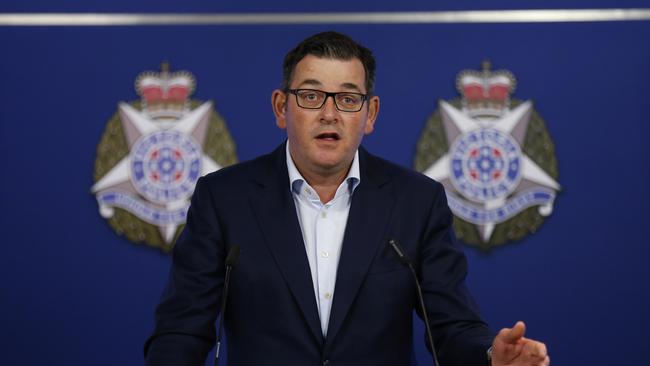Belt and Road no windfall for state that broke ranks
Victoria’s share of Chinese investment in Australia has plummeted in the past year.

Victoria’s share of Chinese investment in Australia plummeted in the past year, despite the Andrews Labor government breaking ranks with the commonwealth to sign up to the controversial Belt and Road Initiative.
According to KPMG and University of Sydney’s latest Demystifying Chinese Investment report, Chinese investment in Victoria fell to $420m in 2019 from $2.2bn a year earlier. This equated to its share of overall Chinese investment in Australia diving from 27 to 12 per cent.
The Andrews government has attracted criticism for becoming the only jurisdiction in Australia to sign up to President Xi Jinping’s Belt and Road Initiative, despite the Department of Foreign Affairs and Trade cautioning about entering into written agreements relating to BRI.
It comes amid heightened trade tensions between Australia and its biggest trading partner China with two-way trade valued at $235bn. China imposed punitive 80 per cent tariffs on Australian barley and suspended exports from four Queensland abattoirs, as well as warning students about studying in Australia, following Prime Minister Scott Morrison’s push for an inquiry into the origins of coronavirus.
Overall, Chinese investment in Australia dropped by more than 60 per cent last year to $3.4bn — the lowest level in a decade — as Beijing shifted capital towards developing nations that had signed up to the Belt and Road Initiative.
But it appears Victoria has yet to reap the rewards of the non-binding agreement, which Premier Daniel Andrews said would create more jobs when he secured a memorandum of understanding with Beijing over BRI in 2018.
“(The BRI agreement) is more symbolic in that it’s a trade promotion agreement,” said Hans Hendrischke, author of the Demystifying Chinese Investment report.
“The agreement as such is a non-binding agreement, it doesn’t have any legal force to it, and it’s signed with the NDRC (National Development and Reform Commission), which is not an executive body in the sense they are not a local government or part of a body that either absorbs or channels investment.”
Chinese investment also fell in NSW, to $1.07bn from $4.4bn, in the past year. This equated to its share sliding from 53 per cent to 31 per cent.
Tasmania, however, was the biggest beneficiary, surging from $342m to $1.5bn to account for 44 per cent of all Chinese investment in Australia. This was thanks to Mengniu’s $1.5bn takeover of Launceston-headquartered infant formula business Bellamy’s Organic.
Western Australia had $208m or 6 per cent of Chinese investment. Queensland also had about 6 per cent at $197m. South Australia attracted 1 per cent at $38m.




To join the conversation, please log in. Don't have an account? Register
Join the conversation, you are commenting as Logout